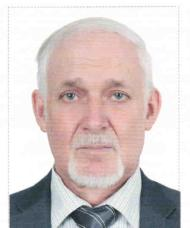Submission Deadline: 01 September 2025 View: 268 Submit to Special Issue
Prof. Dr. Vladislav Sadykov
Email: sadykov@catalysis.ru
Affiliation: Department of Heterogeneous Catalysis, Federal Research Center, Boreskov Institute of Catalysis, Lavrentiev Ave. 5, Novosibirsk, 630090, Russia
Research Interests: Heterogeneous catalysis of red-ox processes for the energy production (including solid oxide fuel cells, transformation of biofuels into syngas and hydrogen; advanced technologies of nanophase and nanocomposite materials synthesis; design of structured functionally graded materials for solid oxide fuel cells, monolithic catalysts for fuels transformation into syngas and hydrogen, oxygen/hydrogen separation membranes for catalytic reactors of syngas/hydrogen generation

Prof. Dr. Nikolai Uvarov
Email: uvarov@solid.nsc.ru
Affiliation: Laboratory of Solid State Ionics, Institute of Solid State Chemistry and Mechanochemistry, Siberian Branch of the Russian Academy of Sciences, Novosibirsk, 630090, Russia
Research Interests: Solid electrolytes, Solid State Electrochemical Devices, Composite Solid Electrolytes, Nanocomposites

Prof. Dr. Andre C. van Veen
Email: andre.vanveen@warwick.ac.uk
Affiliation: School of Engineering, University of Warwick, Coventry, CV47AL, United Kingdom
Research Interests: Hydrogen (production and use), Catalyst (synthesis and characterization), Kinetic studies, Reactor design

Prof. Dr. Christos Argirusis
Affiliation: Laboratory of Inorganic Materials Technology, School of Chemical Engineering, National Technical University of Athens, Athens, 15780, Greece
Email: amca@chemeng.ntua.gr
Research Interests: Materials for energy applications; Solid Oxide Fuel Cells; Microbial Fuel Cells; Composite Materials at nano-level; Catalysis incl. Photocatalysis

Hydrogen as a clean and versatile energy carrier is a key element for the transition to a more sustainable and carbon-free economy. Hence, major research efforts are devoted to the development of efficient technologies for hydrogen generation from different sources and by a variety of methods as well as to the storage and design of fuel cells (especially solid oxide fuel cells) for their use in energy production. The above aspects of energy engineering are vital to be considered in this special issue of Energy Engineering Journal.
The purpose of this special issue is to present the advances in the development of technologies for hydrogen production and storage and their usage for energy generation by solid oxide fuel cells. It includes the catalytic transformation of biogas/biofuels into syngas and hydrogen on structured catalysts to feed fuel cells; hydrogen and syngas generation in catalytic reactors equipped with hydrogen/oxygen separation membranes or in solid oxide electrolyzers; syngas and hydrogen generation in redox cycles for complex oxide/metal systems with a high oxygen mobility and storage capacity; hydrogen storage in devices based on nanoalloys.
This Special Issue will deal with novel approaches to the design of efficient catalysts for the processes of syngas and hydrogen generation from a variety of fuels and their operation optimization via elucidation of atomic-scale features of reaction mechanism; synthesis of nanocomposite active components for catalysts and materials for solid oxide fuel cells and permselective membranes by new methods; detailed characterization of their real structure, transport properties, surface features and reactivity; mathematical modeling of real devices performance taking into account heat and mass transfer processes, methods of manufacturing and comprehensive research of electrochemical devices and oxygen/hydrogen separation membranes. Authors are invited to submit their latest results; both original research papers and reviews are welcome.
Suggested themes:
- oxygen-ion and proton conductors
- solid electrolytes for electrochemical devices
- composite/nanocomposite solid electrolytes
- new systems and components for electrochemical energy storage
- catalysts (including electrode systems)
- new types of nanocomposite active components for catalysts of syngas and hydrogen generation
- hydrogen generation and purification, e.g. design of structured heat-conducting catalysts for biogas/biofuels transformation into syngas by partial oxidation, steam/dry or auto thermal reforming; for water gas shift reaction and preferential CO oxidation in hydrogen feeds
- catalysts performance stability to coking and sintering
- internal reforming of biofuels in SOFC and membrane reactors
- design and testing of asymmetric supported nanocomposite membranes for oxygen separation from the air (to be used for biofuels oxidation) or hydrogen; design and testing of SOE for the transformation of water-CO2 feeds into syngas
- mathematical modeling of structured catalysts, catalytic membrane, SOFC, and SOE performance
- syngas and hydrogen generation in redox cycles for complex oxide/metal systems with a high oxygen mobility and storage capacity
- chemical hydrogen storage and transport (including meta molecules), e.g. hydrogen generation by the interaction of Al-based alloys with water, hydrogen storage systems based on metal alloy nanocomposites, or ammonia-related technology
- transport properties and safety
- reaction mechanism
- kinetic or characterization studies related to hydrogen technology


 Submit a Paper
Submit a Paper Propose a Special lssue
Propose a Special lssue